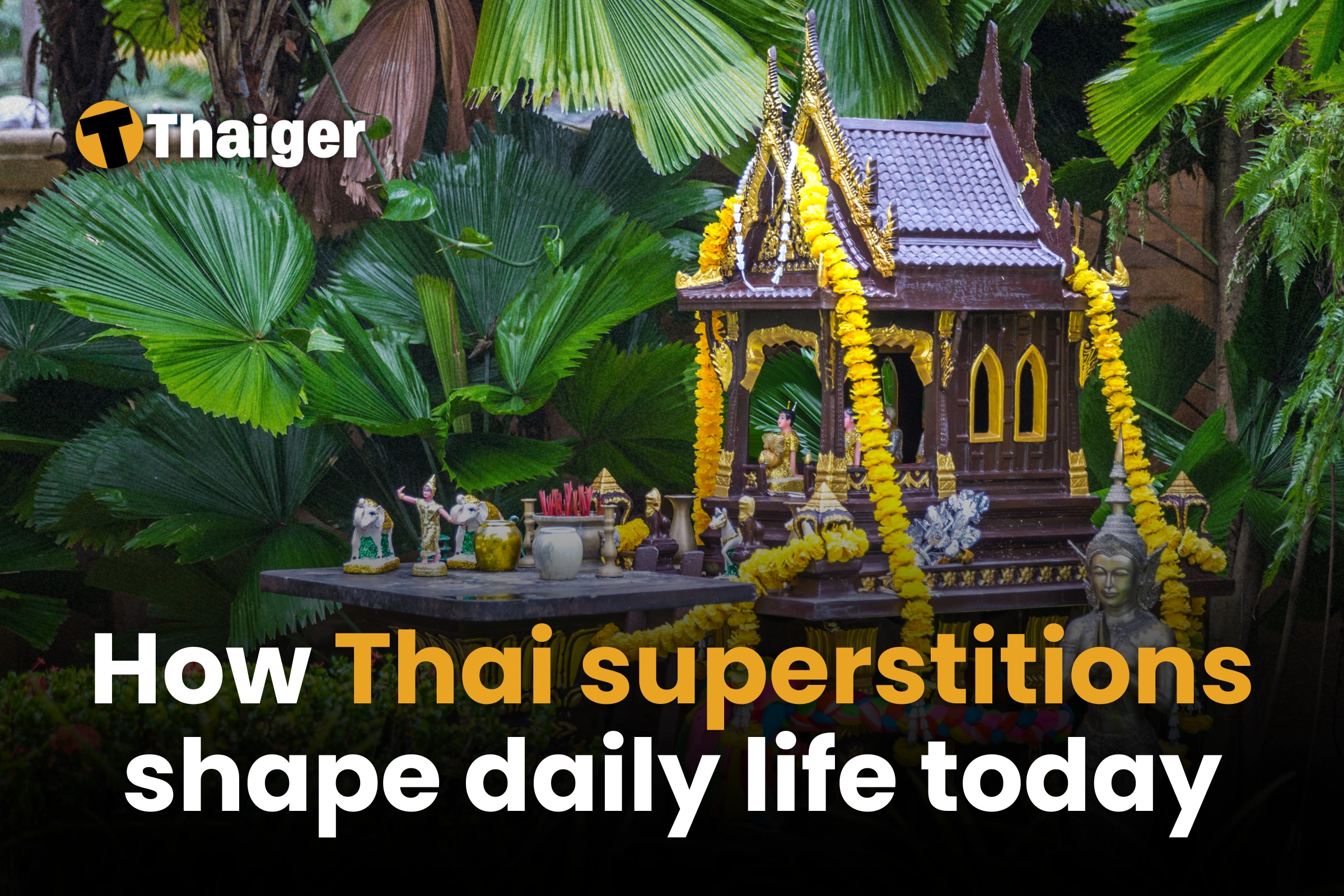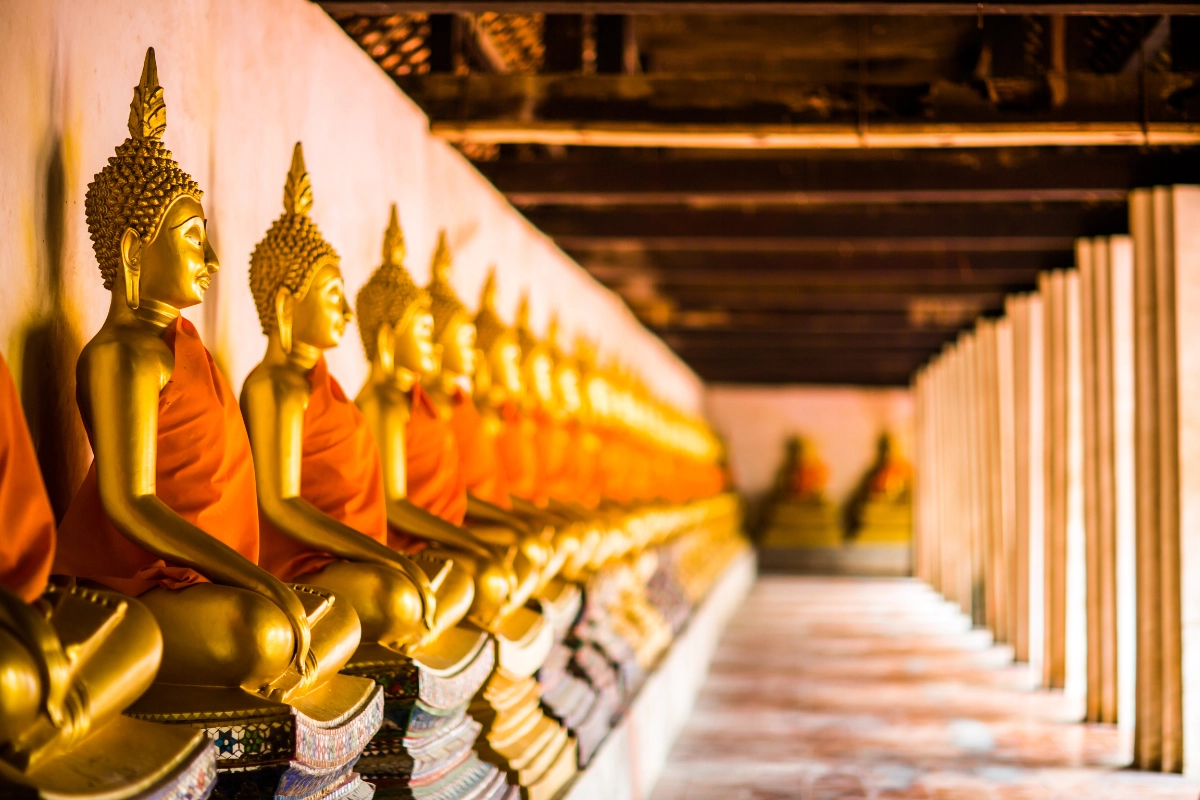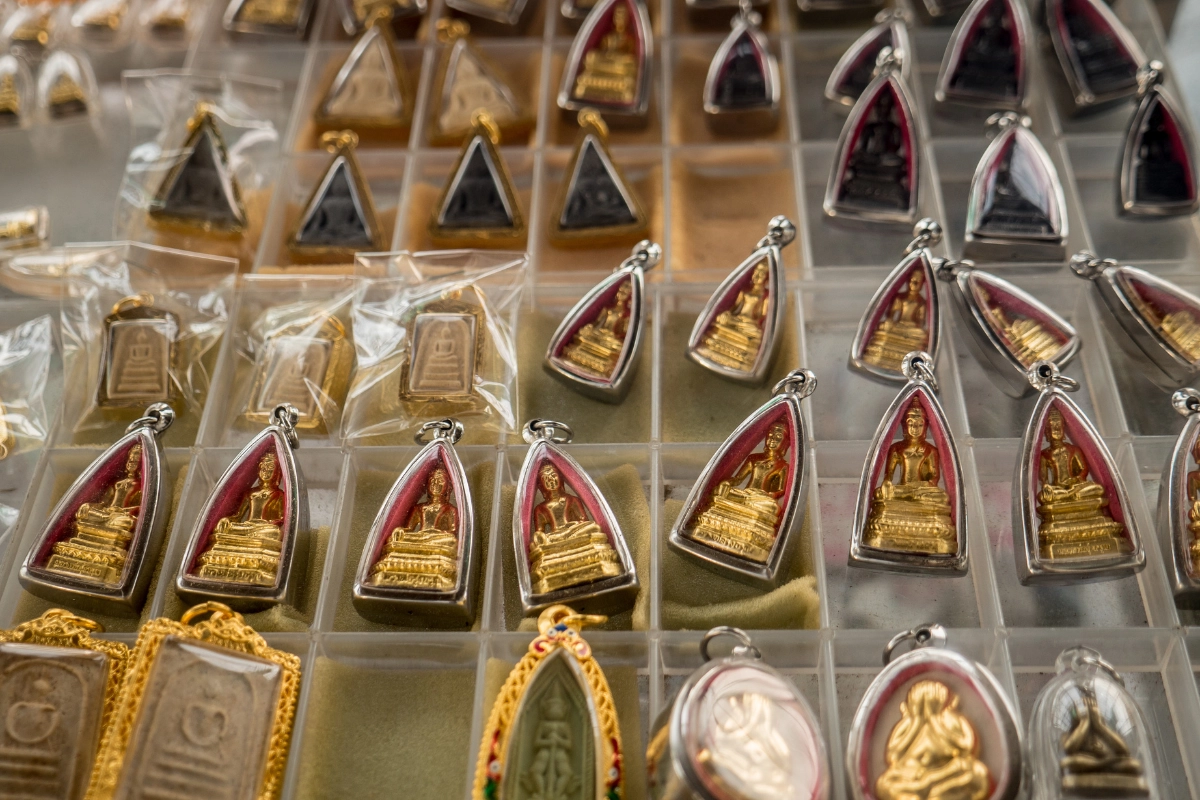How Thai superstitions shape daily life today

Thai culture is full of fascinating traditions, and superstitions are a big part of it. If you’re walking past a spirit house or hearing someone talk about an unlucky number, you’ll notice these beliefs are everywhere. Superstitions may seem mystical, but they still influence daily life in Thailand. Understanding these beliefs can help you connect with Thai culture. Let’s explore some of the most interesting superstitions and how they influence modern life.
How superstitions came to be
Thai superstitions come from a mix of Buddhism, animism, and folklore. Many beliefs are tied to respecting spirits or avoiding bad luck. These traditions have been passed down for generations and are still part of daily life.
Even though Thailand is modernising fast, these beliefs stay strong. You’ll see them in homes, businesses, and even government events. They’re not just about fear of bad luck, they’re about keeping harmony between the seen and unseen worlds.

Superstitions in homes and businesses
One of the first things you’ll notice in Thailand is spirit houses. These small structures sit outside homes, shops, and even skyscrapers. They’re there to give spirits a place to stay, keeping them happy and away from the main building.
People often leave offerings like food, drinks, and flowers at these spirit houses. It’s a daily practice that shows respect for the unseen. Businesses believe these rituals bring prosperity and protect against misfortune.
Another common superstition involves housewarming ceremonies. When someone moves into a new house, monks are invited to bless it. This is believed to bring good luck and drive away any bad spirits that might linger.
The power of numbers and dates
Numbers play a huge role in Thai superstitions. The number 4, for example, is considered unlucky because it sounds like the word for ‘death’ in Thai. Many people avoid using this number, especially in house numbers or phone numbers.
On the other hand, the number 9 is seen as very lucky. It’s linked to progress and moving forward. You’ll notice that many businesses and events try to include this number, like starting a ceremony at 9.09am.
Other than those numbers, other numbers are intertwined with Thai belief too:
| Number | Meaning | Cultural Impact |
|---|---|---|
| 4 | Unlucky, sounds like ‘death’ | Avoided in house numbers, license plates, and phone numbers. |
| 6 | Lucky, associated with smoothness | Represents smooth progress and is often used in business names and phone numbers. |
| 7 | Neutral, sometimes unlucky | While neutral, some see it as unlucky because it represents ‘suffering’ in certain contexts. |
| 8 | Lucky, associated with prosperity | Represents wealth and success, popular in phone numbers and business branding. |
| 9 | Very lucky, symbolises progress | Frequently used in events, ceremonies, and business decisions. |
| 13 | Unlucky, a Western influence | Rarely seen in hotel floors or room numbers, but this belief is less prominent in Thai culture. |
| 89 | Extremely lucky, linked to progress and prosperity | A combination of two positive numbers, often sought after in license plates and phone numbers. |
| 99 | Extremely auspicious | Double ‘9’ amplifies progress and good fortune, commonly seen in pricing and branding. |
Choosing the right date for important events is also a big deal. There’s even an auspicious date for buying a car in Thailand, which many consult astrologers or monks about to ensure luck and safety. They believe the right date can make a huge difference in success and happiness.
Personal amulets
Certain objects and actions hold strong meanings in Thai culture. For example, amulets are hugely popular and often worn for protection and good fortune. These small charms are blessed by monks and believed to shield wearers from harm.

Rituals and ceremonies for major events
Superstitions aren’t just for daily life, they also play a big role in major life events. For example, when someone buys a new car, it’s common to have monks bless it. This ritual is believed to protect the driver and passengers from accidents.
Another example is consulting spirit mediums for big decisions. Families or business owners often turn to these individuals to seek guidance from the spirit world. Whether it’s about a marriage, a new job, or buying property, these rituals are taken seriously.
Childbirth also has its own set of superstitions. Newborns might wear a red string on their wrist to ward off evil spirits. Parents believe these small steps can keep their child safe and healthy.
Fun and quirky beliefs you might not know
Not all Thai superstitions are serious. Some are more quirky and fun, but people still follow them. For example, many Thais believe it’s bad luck to cut your hair on a Wednesday. Barbershops traditionally close that day, even though the reason has faded over time.
Thai folklore is also filled with stories that reflect these beliefs. For instance, famous Thai ghost stories highlight the cultural mix of spirituality and tradition, offering a fascinating look into how these tales connect with daily life.
Here are some more quirky beliefs you might not have heard about:
Weddings and rain
It’s believed that rain on a wedding day brings blessings and abundance to the couple. Couples see it as a positive sign, even if it might seem inconvenient.
Pregnant women and scissors
Expectant mothers often keep scissors under their pillows. This practice is thought to ward off evil spirits and protect the unborn baby. It’s a superstition that highlights the care and love surrounding childbirth.
Dreams and lottery numbers
Thais often look to dreams for lottery inspiration. If you dream about certain animals or events, it might guide your choice of numbers. This practice is taken seriously by many who play the lottery regularly. Some even believe in unique methods to increase their chances, as explored in these 10 ways people have tried to win the Thai lottery.

Another interesting belief is about geckos. If you hear one chirping when you’re about to leave the house, it’s considered a bad omen. Some people delay their plans to avoid bad luck.
These small quirks add a unique charm to daily life in Thailand.
Why superstitions still matter today
You might wonder why these beliefs persist in a world dominated by technology and science. For many Thais, superstitions offer a sense of security and connection to their roots. They also help build community through shared traditions and rituals. Superstitions are a way to balance modern life with cultural heritage. Even younger generations respect and follow many of these practices.
How you can respect Thai superstitions
As an expat or visitor, understanding these beliefs helps you connect better with Thai culture. Here are a few tips:
- Respect spirit houses: Never touch or move offerings on these small shrines. They hold deep meaning for locals.
- Avoid stepping on money: Thai currency features the king’s image, and stepping on it is seen as highly disrespectful.
- Avoid pointing your feet at people or sacred objects: In Thai culture, feet are considered the lowest part of the body and pointing them at others, especially at religious symbols, is seen as disrespectful.
- Be open to learning: If you’re unsure about a custom, ask politely. Thais are usually happy to explain their traditions.
These little actions may seem small, but they show how deeply rooted superstitions are in everyday life.
Thai superstitions aren’t just quirky, they’re a glimpse into the soul of the culture. From spirit houses outside skyscrapers to amulets tucked in pockets, these beliefs are everywhere. Spot them as you explore, and you’ll see how they blend tradition and modern life in such a unique way.
FAQs about Thai superstitions
What are the most common Thai superstitions?
Spirit houses, lucky and unlucky numbers (like 9 and 4), and rituals such as housewarming ceremonies are among the most common superstitions in Thailand.
Why do Thais avoid cutting hair on Wednesdays?
It’s a traditional belief that cutting hair on Wednesdays brings bad luck, and many barbershops still close on this day.
What is the significance of spirit houses in Thailand?
Spirit houses provide a place for spirits to reside, ensuring harmony and protection for the home or business.
Why do pregnant women keep scissors under their pillows in Thailand?
It’s believed that scissors ward off evil spirits and protect the unborn baby from harm.
How do Thai superstitions influence daily life?
Superstitions influence activities like choosing auspicious dates for weddings, car purchases, or business events and guide daily practices like respecting spirit houses.
Interested in learning more about Thai culture? Check out our guide to Thailand’s fascinating culture!
- 10 unique Thai superstitions for the curious
- List of etiquette and rules in Thailand
- Things you should not do to Thai person
Latest Thailand News
Follow The Thaiger on Google News:


























